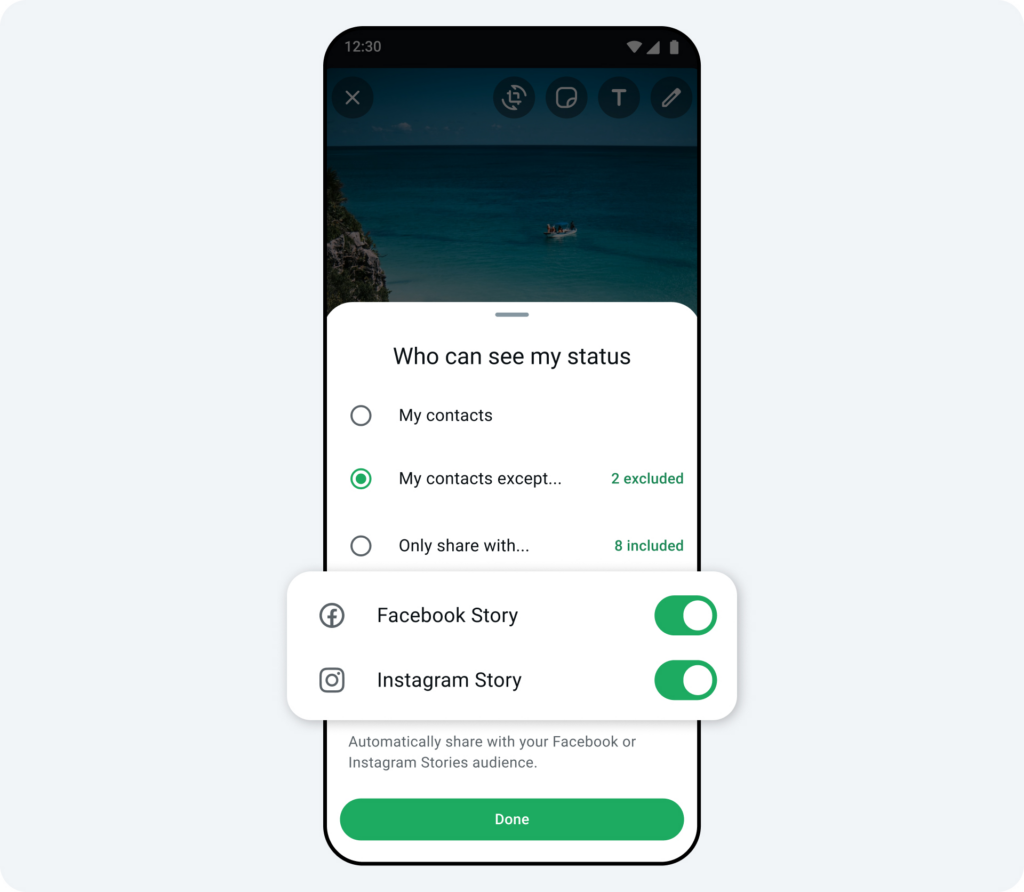Since its inception in 2020, Meta’s Accounts Center has become a crucial tool. It helps users streamline their experiences across Facebook, Instagram, and Meta Quest. Now, Meta is taking it a step further.
The company recently announced a significant update. Users will soon be able to add WhatsApp to the Accounts Center. This feature aims to make app interconnectivity even more seamless.
This integration is entirely optional. Users have complete control over their accounts and privacy. Meta assures that the feature will remain off by default.
For those who choose to link their accounts, new possibilities will emerge. One prominent feature is cross-platform sharing. Users can reshare WhatsApp status updates directly with Facebook or Instagram Stories.
This eliminates the need for multiple posts, saves time, and makes sharing updates much more manageable. Users can reach their audience across platforms with a single action.
Another significant feature is single sign-on (SSO). It allows users to log back into WhatsApp faster, and linked accounts reduce the hassle of multiple authentication steps.
The SSO feature is handy for those who switch devices often. It ensures quick access without complications. Meta aims to enhance convenience and efficiency.
Meta also plans to roll out additional features in the future. These will further unify experiences across its apps. For example, users can manage avatars and creative tools in one place.
Features like Meta AI stickers and Imagine Me creations will also be centralized. This will simplify managing creative elements and allow users to control their digital personas.
Privacy remains a top priority for Meta. The company emphasizes that WhatsApp’s end-to-end encryption remains intact. Messages and calls will remain private, even with account linking.
No one, not even Meta or WhatsApp, can access private communications. This encryption ensures complete security for users. Meta is committed to maintaining this standard.
Meta has pledged transparency for these updates. The company will provide clear explanations within its apps so users will understand how features work and make informed choices.
The rollout will be gradual, ensuring a smooth experience. It will also allow time to address potential concerns and refine the feature.
This integration reflects Meta’s vision for a cohesive ecosystem. It offers flexibility while maintaining user control, and the company aims to set a new standard for connected experiences.
Users can find the linking option in WhatsApp settings. Alternatively, they may encounter prompts when resharing content across apps. The process will be straightforward and user-friendly.

Meta’s strategy also includes fostering creativity and engagement. Unified tools make it easier to create and share, enhancing the user experience across all platforms.
The ability to manage everything from one place saves time, reduces complexity, and improves convenience. Users also benefit from streamlined workflows and intuitive design.
Meta’s focus on privacy strengthens trust. The company understands the importance of secure communication, and its encryption standards are among the best in the industry.
Meta respects user preferences by offering optional features. Individuals can choose the level of integration that suits them, and this flexibility is key to the platform’s appeal.
As these updates roll out, Meta is poised to innovate further. The interconnected ecosystem sets the stage for future advancements, and millions of users stand to benefit from these improvements.
The addition of WhatsApp to the Accounts Center is a bold step. It demonstrates Meta’s commitment to convenience and user satisfaction. The future of connected experiences looks brighter than ever.
- 107shares
- Facebook Messenger
About the author
Fahad Hameed is an expert in consumer technology and tech developments, with an MSc in Electrical and Computer Engineering from Khalifa University. He offers his unique insights on high-tech science breakthroughs, having worked as a consultant for the industry’s top fortune 500 companies. His research focuses on finding new ways to apply emerging technologies to solve real-world problems.





